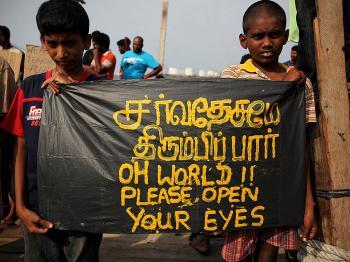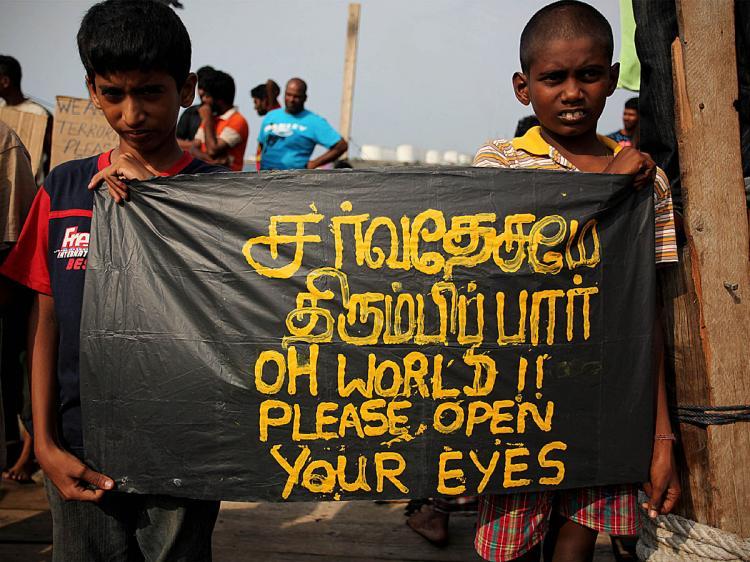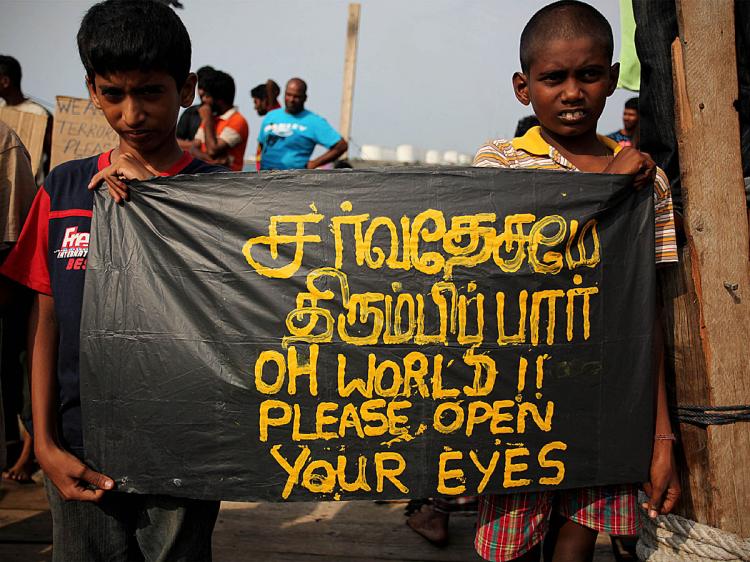SYDNEY—The Australian government has announced that it will suspend processing of new Sri Lankan and Afghan asylum seekers, a move that has shocked refugees and refugee advocates.
There is an air of despair on Christmas Island over the news that processing will be suspended immediately for asylum seekers from war-torn Afghanistan and devastated Sri Lanka.
Curtin University professor Linda Briskman has been on the island for a week and was there when the announcement was made.
“There was quite a degree of shock here,” she told The Epoch Times. “No one was expecting this particular announcement—it seemed to come from nowhere.”
Professor Briskman is worried about the “mental health impact” of future refugees who would be stuck on Christmas Island or in detention in Indonesia indefinitely.
She and her colleagues on the island are already seeing signs of despair, and there are children and families in detention too. “It is just not the place they should be,” she said.
Concerns about the government’s new ruling have been raised by a number of rights and refugee groups, including the Australian Human Rights Commission and Amnesty International.
The federal government, however, is sticking to its position. In a joint press conference, Foreign Minister Stephen Smith and Immigration Minister Chris Evans said they believed Sri Lanka was stabilizing after two decades of conflict and Afghanistan was seeing “durable security.”
“What the pause says is that we think conditions are improving, that the advice from the UNHCR [U.N. High Commission for Refugees] is they’re reviewing their advice and their advice is one of many that we use,” Evans said.
There is an air of despair on Christmas Island over the news that processing will be suspended immediately for asylum seekers from war-torn Afghanistan and devastated Sri Lanka.
Curtin University professor Linda Briskman has been on the island for a week and was there when the announcement was made.
“There was quite a degree of shock here,” she told The Epoch Times. “No one was expecting this particular announcement—it seemed to come from nowhere.”
Professor Briskman is worried about the “mental health impact” of future refugees who would be stuck on Christmas Island or in detention in Indonesia indefinitely.
She and her colleagues on the island are already seeing signs of despair, and there are children and families in detention too. “It is just not the place they should be,” she said.
Concerns about the government’s new ruling have been raised by a number of rights and refugee groups, including the Australian Human Rights Commission and Amnesty International.
The federal government, however, is sticking to its position. In a joint press conference, Foreign Minister Stephen Smith and Immigration Minister Chris Evans said they believed Sri Lanka was stabilizing after two decades of conflict and Afghanistan was seeing “durable security.”
“What the pause says is that we think conditions are improving, that the advice from the UNHCR [U.N. High Commission for Refugees] is they’re reviewing their advice and their advice is one of many that we use,” Evans said.
UNHCR Not Happy
However, UNHCR regional head Richard Towle said he thought that by suspending asylum claims from Sri Lanka and Afghanistan, the Rudd government stood alone in the developed world.
“UNHCR is currently examining the detail and implications of the Australian government’s announcement of a suspension of asylum claims from Afghanistan and Sri Lanka,” he told News Limited.
“I am not aware of any other countries in the industrialized world which have suspensions in place for asylum claims for people from these countries.”






